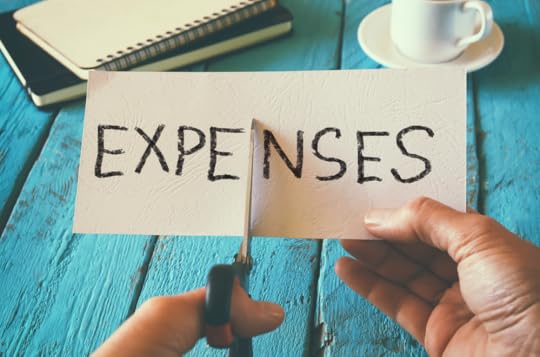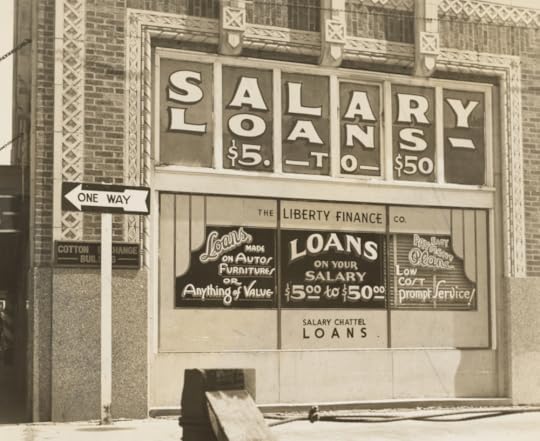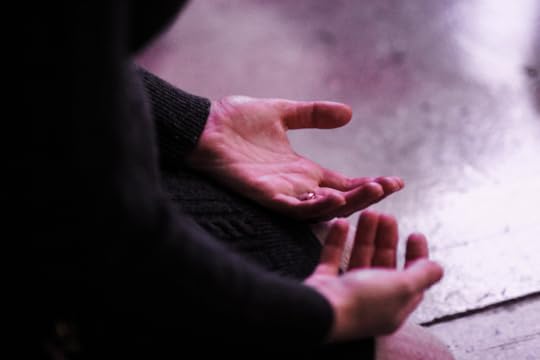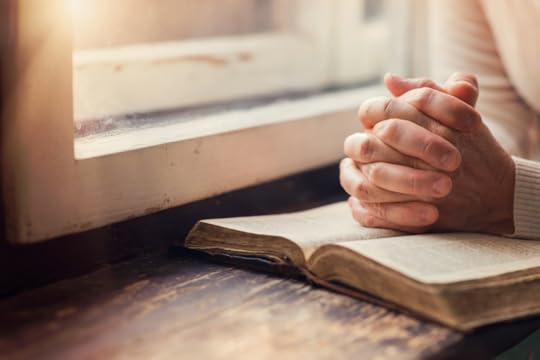Randy Petrick's Blog, page 3
March 27, 2024
Looking Back, Planning Forward: Surrendering to Time
Happy (belated) 2024! I’ve been absent from posting new thoughts for a while as I worked to upgrade this website. Hopefully, you will like the new look and the new content [adding Book Reviews and a section that will focus on Prayer(s)], and the wait will have been worth it. As I write this, I’m now five months into life as a septuagenarian and have started reflecting on life in my 70’s. Like everyone else, I have no idea if my remaining time will be a matter of hours, days, months, or some (now well reduced!) number of years.

As befits a new year, I’ve been looking back, planning forward, and thinking about my Christian “surrender” to God in those contexts.
I understand surrendering my life, talents, and treasures, but lately (because I have less of it) I’ve been considering a different kind of surrender…surrendering my time.
“What does surrendering my time even mean?” I asked myself. The main key, I decided, must be the act of letting go of expectations - allowing God’s plans to unfold naturally without trying to force or manipulate outcomes. (Well, that’s easy. Yeah, right.)
So, surrendering to time must mean trusting that God is in control and that He has a purpose for every moment of our lives. Reflecting on my past years meant accepting both the ups and downs of life, the joyful events and the challenges, and seeking God's guidance and strength to navigate them all.
I’ve had many joyful years, but also some with intense challenges. Wow, have I had some challenges! (Being laid off at age 51 after 28 years with the same company was one. Facing family medical bills of over $250,000 was another. We could probably include my being born prematurely, living in an incubator [and then a shoebox, too!] – but my memory is vague on that period of difficulty.) But God brought me through them all. Praise Him for that.

Looking ahead to 2024, an old saying came to mind: “God can't steer parked cars.”
I believe pastor and author Rick Warren to be the author of the following quote I like a lot, but haven’t been able to determine it for sure:
“There are things you already know God wants you to do. Just start moving on those things. We can’t do everything in life, but we can certainly do everything God wants us to do.”
That’s advice worth contemplating as we start any new year or new period in our lives.
So, what if I AM down to my last year on earth? Are there things I would do differently if I knew that to be true? Yes. These were first to my mind:
· I’d eat and drink less but enjoy both more.
· I’d spend less time with the news and more time praying.
· I’d spend more time listening and less time talking.
· I’d spend more time reading my Bible and less on frivolous activities.
· I’d stop more often to ask, “What is the wise thing to do?”
· I’d relax more and worry less.
· I’d spend more time doing the important things, and less time on the urgent.
· I’d give and collect more hugs and kisses.
· I’d say “I love you” more often.
· I’d express gratitude more often.
· I’d frown less and smile more.
· I’d live more fully in the present and less in the past or future.
· I’d be more forgiving.
· I’d only floss the teeth I want to keep. (If I hear you laugh, I'll know you're still here.)
· I’d donate more to charities and faith leaders.
· I’d spend more time writing – and sharing ideas I hope will outlive me.
· I’d spend more time in the presence of my Heavenly Father.
And, finally, I’d remind myself that these really ARE my last months or years on earth, no matter how many or how few, ask myself, “What am I waiting for?” and quit being a parked car.

PS: To clarify, I was told I “fit” in a shoebox as a preemie (albeit a men’s size 12), but I wasn’t told that I lived there. Hopefully, that relieves you a bit about it.
December 5, 2023
STEWARDSHIP SUCCESS PRINCIPLES
Wise and Faithful Management
The Christian concept of stewardship is rooted in the belief that everything we have, including our time, talents, resources, and creation itself, ultimately belong to God. We are caretakers entrusted with managing and using these God-given gifts in a manner that aligns with His purposes and glorifies Him.

Responsibility has to do with how we use and allocate the resources God gives us to manage. Accountability is about fulfilling our commitments to God, ourselves, and our loved ones. This includes wisely and faithfully managing our finances, knowing that we will one day be called to give an account of our stewardship. 1 Corinthians 4:2 (AMP) says,
In this case, moreover, it is required [as essential and demanded] of stewards that one be found faithful and trustworthy.
In today’s consumer-driven society, it is not uncommon for individuals, including Christians, to find themselves burdened with credit card debt. According to LendingTree.com, the average credit card interest rate in American today is 24.56% - the highest since LendingTree began tracking rates monthly in 2019.
[Case Study: I have clients who have a $9,000 balance on a credit card currently charging 20% interest. In that scenario, they are incurring $1,800 of interest every year at that balance – or $150 per month of expense. Think how much less their financial stress could be if they had that $150 per month as extra to put toward their expenses in these high inflation times rather than losing it to the credit card company!]
With interest rates this high, credit card debt can especially hinder our ability to allocate our resources effectively, so it is important for us to successfully manage and eliminate our credit card debt.
Faith-Based Underpinnings

The road to paying off credit card debt begins with acknowledging the spiritual implications of our indebtedness. While the Bible never explicitly prohibits debt, it does emphasize the need for responsible financial stewardship and cautions against debt and the entrapment it can create.
Proverbs 22:7 states:
The rich rules over the poor, and the borrower is the slave of the lender.
Broadly speaking, it may not be too much of a stretch to interpret that as a call for prudence and conscientious management of our resources. Are you ready to start down the path of reducing and eventually eliminating your credit card debt? Here are 11 steps to get you on your way.
Practical Steps
1. Seek God’s Guidance: As believers, it is essential to seek God’s guidance in all aspects of our lives, including our finances. Begin by praying earnestly about your financial situation and asking for wisdom, discipline, and strength to overcome the challenges ahead.
2. Assess Your Debt: Take an honest look at your credit card debt by gathering all relevant information such as outstanding balances, interest rates, and minimum payments required. This assessment will provide you with a clear understanding of the big picture concerning your debt and will be useful in helping you to develop a realistic plan moving forward.
3. Create a Budget: One of the most effective ways to pay off debt is to create a realistic budget. A budget helps you prioritize your spending, identify areas of excess, and allocate more money toward debt repayment. Start by listing all sources of income along with necessary expenses such as housing costs, utilities, groceries, and transportation expenses while being sure to leave room for savings and your emergency fund.

4. Cut Expenses: To accelerate debt repayment, it may be necessary to make short-term sacrifices and cut back on non-essential expenses. Consider reducing discretionary expenses like eating out or entertainment costs temporarily until your debts are paid off. Redirect the saved money toward repaying your credit card debt. Remember, these adjustments are temporary measures to achieve long-term financial freedom. Think back to the case study mentioned earlier. To me, the long-term result of having $150/month more to spend makes cutting some discretionary expenses in the short-term a lot easier to do.
5. Increase Income: Explore opportunities to increase your income through part-time jobs or freelancing gigs that align with your God-given talents. If you can generate income outside of your primary job, the additional income can be directly allocated toward paying off credit card debts more quickly.
6. Prioritize Debt Repayment: Once you have established an accurate budget and identified potential areas for expense reduction or increased income, it’s time to prioritize your debt repayment. Consider using the “debt snowball” method where you pay off the smallest balance first while making minimum payments on other debts. As each debt is paid off, roll that payment into the next larger one until all debts are cleared.
7. Negotiate Lower Interest Rates: Contact your credit card companies to inquire about the possibility of reducing your interest rates. Explain your situation sincerely and ask whether they can offer lower rates. Many creditors are willing to work with individuals who demonstrate a genuine commitment to paying off their debts. Reducing the interest rates can help you save money in the long-run and accelerate your debt repayment journey.
8. Seek Professional Help if Needed: If you find it overwhelming to navigate through your debts alone, seek professional help. Christian credit counseling agencies can provide guidance, debt management plans and other helpful tools. They can also provide personalized advice and strategies tailored specifically to your situation.

9. Practice Contentment: Practicing contentment means finding satisfaction and gratitude in God’s provision and trusting His plan, rather than constantly pursuing worldly desires. True fulfillment comes from a relationship with God, rather than material possessions or status. The apostle Paul writes in Philippians 4:11-13,
I have learned in whatever situation I am to be content. I know how to be brought low, and I know how to abound…
Embracing contentment allows us to more easily live within our means and steer clear of the excessive debt accumulation that is often driven by desires for worldly possessions.
10. Seek Accountability and Support: Find someone you trust within your Christian community who can hold you accountable for sticking to your budget and financial goals. An accountability partner can furnish encouragement, guidance, and shared wisdom, all of which are much-needed support during the challenging debt elimination journey.
11. Practice Generosity:

This step is less intuitive, but I would encourage you to embrace giving as a practical step even while you are working on decreasing your debt. If you practice giving on a smaller scale now, you will already be in the habit once you achieve your debt-reduction goals and have the capacity to give more. Not to mention, this is also a very effective way to stretch and grow your faith!
Congratulations for taking steps to reduce and eliminate your credit card debt! The journey may require discipline, sacrifice, and perseverance, but in the end, it will lead to a life with far greater financial peace and a wonderfully enhanced ability to positively impact God’s kingdom with your finances.
ANOTHER RESOURCE TO CONSIDER:There are many excellent books written on the subject of reducing debt. This one has been around a while, but it is still one of my personal favorites. It's the book Free and Clear: God's Roadmap to Debt-Free Living written by Howard Dayton. If you are ready for additional help and encouragement, it could be the best $10 you spend this year.
#ad
November 18, 2023
EMERGENCY FUND 101: THE KEY TO BUILDING FINANCIAL RESILIENCE
As Christians, we are called to be wise stewards and to trust in God's provision. That's an interesting pairing of ideas. Does trust imply that we do not need to plan and save? I don't think so. Life can bring unexpected challenges and expenses; a good steward should acknowledge those possibilities and prepare for those emergencies.
The Bible encourages us to trust but also offers numerous insights and guidance on the importance of preparation. One well-known scripture that addresses this is found in Proverbs 6:6-8 (NIV):

Go to the ant, you sluggard; consider its ways and be wise! It has no commander, no overseer or ruler, yet it stores its provisions in summer and gathers its food at harvest.
This passage highlights the idea of being diligent and proactive in preparing for the future, drawing inspiration from the ant, which diligently stores food for times of need.
Should we be preparing for times of need just as ants do? Yes! Many of us rely on multiple income streams or freelance work in today's gig economy. While this is great for providing flexibility and the potential for increased income, it also comes with inherent uncertainties. An emergency fund can act as a buffer, allowing us to navigate through lean months, unexpected gaps in income, and other emergencies.
What is an Emergency Fund?An emergency fund is a designated pool of money to cover unexpected expenses such as medical emergencies, car repairs, or sudden job loss. It acts as a financial cushion, allowing us to be good stewards of the resources God has given us.
When we have readily accessible funds, we can also navigate through emergencies without negatively impacting our financial stability. By using our emergency funds for unexpected events, we can avoid debt and continue fulfilling our financial obligations, such as mortgage payments, utility bills, and other essential expenses, without adding the unnecessary and unwanted stress that comes when we exceed our budgets.
Perhaps best of all, having an emergency fund not only benefits us individually but also enables us to contribute more effectively to the work of God's kingdom. When we are financially secure, we can give generously to our churches and other local ministries, help meet the many needs within the global community, and successfully be the good stewards God calls us to be.
So, I'm a pretty good student, right? I read many books and articles and research topics with gusto (I'm stating that kindly) to increase my odds of success. And I did that when I first learned how to build an emergency fund. I learned:
· to still prioritize my giving. Acknowledging God's blessing is the foundation of any Christian financial plan.
· to assess my income and expenses.
· to create a budget.
· to set realistic savings goals.
· to automate my savings with an automatic monthly transfer to my emergency fund.
· to minimize frivolous spending.

I did all those things…and yet my attempts to build my emergency savings kept failing. My first goal (attaining $500 in the fund) went fine, but my next goal (attaining $5,000 in the fund) failed time after time. I'd get close to the $5,000 mark, but every time I started getting excited about my progress, something would happen, and my fund would get wiped out again. It was so frustrating.
Then, one day, I was listening to Dave Ramsey talk about Emergency Funds, and he uttered (yelled, maybe) the phrase that finally saved me…
"Christmas Isn't an Emergency!"
Bingo. My problem suddenly came into focus. Most of the things depleting my emergency fund weren't emergencies! Christmas comes yearly; property taxes come yearly; my medical insurance deductible comes yearly; my car needs maintenance and oil changes yearly; my wife's birthday comes yearly…well, you get the idea.
I realized that I needed to set up a separate savings account for all of these "non-emergencies" that come every year (but not every month), divide each expense by 12, and set aside enough each month to have a reasonable chance of having the money ready for each one when they came along each year.
That did it! Once I started saving for all the non-emergency expenses separately from my true emergency fund, my emergency fund finally hit my $5,000 target and breezed right on by.
Emergency Funds are great for helping us to reduce stress, anxiety, fear, and worry.

They can also reduce our feelings of helplessness and vulnerability during challenging times. Without emergency funds, we are far more likely to make decisions that do not benefit us (such as those mentioned above: relying on credit cards, taking out loans, or borrowing money from others). Those decisions and actions can lead to regret and guilt. Let's avoid them.
Building and stewarding wealth requires a solid financial foundation, and an emergency fund is a fundamental component of that foundation. Building a fund helps us learn financial discipline and encourages us to save consistently. Just remember: Christmas isn't an emergency! Learn from my mistakes.
ConclusionBuilding an emergency fund is wise. When we do so, we demonstrate good stewardship over the resources entrusted to us by God. By having financial safety nets in place, we can experience peace of mind. Unexpected crises will be much less likely to derail our commitments to honor God with our finances or hinder our ability to serve others selflessly. I encourage you to build and maintain an emergency fund so that you can navigate life's uncertainties with confidence and continue living out Christ's love through practical acts of generosity and service.
First, I want to quickly acknowledge an assumption I've made while writing this post. It may not need to be said, but I am assuming that if you've found your way here, it is more likely than not you can set aside some amount of money (however small) to work on building an emergency fund. Not everyone is in that place, and I do recognize that. If you are blessed to be able to set some money aside, as I have been, be sure to thank God for that ability – and keep an eye out and offer a hand up to anyone you meet who isn't. Giving, as our way of reflecting God's incredible love for us, should always be at the forefront of our thoughts and actions.
Second, as I've listened to and read financial news over recent years, I've realized that there are two major financial concerns facing most Americans – 1) the inability to financially handle unexpected emergencies that arise and 2) being smothered in credit card debt. This post and the one that will follow (Paying Off Credit Card Debt) are my contributions to the conversations around those topics. My mission is to help people successfully steward their lives. I pray that these humble posts from my life and heart will help you exactly that way.
Building Resilience: How an Emergency Fund Provides a Safety Net in Uncertain Times
As Christians, we are called to be wise stewards and to trust in God’s provision. That’s an interesting pairing of ideas, isn’t it? Does trust imply that we need not plan and save? I don’t think so. Life can bring unexpected challenges and expenses and a good steward should acknowledge those possibilities and prepare for those emergencies.
The Bible encourages us to trust, but also offers numerous insights and guidance on the importance of preparation. One well-known scripture that addresses this is found in Proverbs 6:6-8 (NIV):

Go to the ant, you sluggard; consider its ways and be wise! It has no commander, no overseer or ruler, yet it stores its provisions in summer and gathers its food at harvest.
This passage highlights the idea of being diligent and proactive in preparing for the future, drawing inspiration from the ant, which diligently stores food for times of need.
Should we be preparing for times of need just as ants do? Yes! In today’s gig economy, many of us rely on multiple income streams or freelance work. While this is great for providing flexibility and the potential for increased income, it also comes with inherent uncertainties. An emergency fund can act as a buffer, allowing us to navigate through lean months, unexpected gaps in income, and other emergencies.
What is an Emergency Fund?An emergency fund is a designated pool of money set aside to cover unexpected expenses such as medical emergencies, car repairs, or sudden job loss. It acts as a financial cushion, allowing us to be good stewards of the resources God has given us.
When we have readily accessible funds, we can also navigate through emergencies without having negative impacts to our financial stability. By using our emergency funds for the unexpected events, we can avoid debt and continue fulfilling our financial obligations such as mortgage payments, utility bills, and other essential expenses without adding the unnecessary and unwanted stress that comes when we exceed our budgets.
Perhaps best of all, having an emergency fund not only benefits us individually but also enables us to contribute more effectively to the work of God’s kingdom. When we are financially secure, we can give generously to our churches and other local ministries, help meet the many needs within the global community, and successfully be the good stewards God calls us to be.
Learn From Me: Why I Kept Failing When I Tried to Build My Emergency FundSo, I’m a pretty good student, right? I read lots of books and articles, and I research topics with gusto (I’m stating that kindly) so I can increase my odds of success. And I did that when I was first learning about how to build an emergency fund. I learned:
· to still prioritize my giving. Acknowledging God’s blessing is the foundational first piece to any Christian financial plan.
· to assess my income and expenses.
· to create a budget.
· to set realistic savings goals.
· to automate my saving with an automatic transfer to my emergency fund each month.
· to minimize frivolous spending.
[image error]I did all those things…and yet my attempts to build my emergency savings just kept failing. My first goal (attaining $500 in the fund) went fine, but my next goal (attaining $5,000 in the fund) failed time after time. I’d get close to the $5,000 mark, but every time I started getting excited about my progress, something would happen, and my fund would get wiped out again. It was so frustrating.
Then one day I was listening to Dave Ramsey talk about Emergency Funds and he uttered (yelled, maybe) the phrase that finally saved me…
“Christmas Isn’t an Emergency!”
Bingo. My problem suddenly came into focus. Most of the things that were depleting my emergency fund weren’t emergencies at all! Christmas comes every year, property taxes come every year, my medical insurance deductible comes every year, my car needs maintenance and oil changes every year, my wife’s birthday comes every year…well, you get the idea.
I realized that I needed to set up a separate savings account for all of these “non-emergencies” that come every year (but not every month), divide each expense by 12, and set aside enough each month to have a reasonable chance of having the money ready for each one when they came along each year.
That did it! Once I started saving for all the non-emergency expenses separately from my true emergency fund, my emergency fund finally hit my $5,000 target and breezed right on by.
Avoiding Guilt and RegretEmergency Funds are great for helping us to reduce stress, anxiety, fear, and worry.
[image error]They can also reduce our feelings of helplessness and vulnerability during challenging times. Without emergency funds we are far more likely to make decisions which are not to our benefit (such as those mentioned above: relying on credit cards, taking out loans, or borrowing money from others). Those decisions and actions can lead to regret and guilt. Let’s just avoid them.
Building a Solid FoundationBuilding and stewarding wealth requires a solid financial foundation, and an emergency fund is a fundamental component of that foundation. The process of building a fund helps us learn financial discipline and encourages us to save consistently. Just remember: Christmas isn’t an emergency! Learn from my mistakes.
ConclusionBuilding an emergency fund is wise. When we do so, we demonstrate good stewardship over the resources entrusted to us by God. By having financial safety nets in place, we can experience peace of mind. Unexpected crises will be much less likely to derail our commitments to honor God with our finances or hinder our ability to serve others selflessly. I encourage you to build and maintain an emergency fund so that you can navigate life’s uncertainties with confidence and continue living out Christ’s love through practical acts of generosity and service.
After ThoughtsFirst, a quick note to acknowledge an assumption I’ve made in writing this post. It may not need to be said, but I am assuming that if you’ve found your way here, it is more likely than not you can set aside some amount of money (however small) to work on building an emergency fund. Not everyone is in that place, and I do recognize that. If you are blessed to be able to set some money aside, as I have been, be sure to thank God for that ability – and keep an eye out and offer a hand up to anyone you meet who isn’t. Giving, as our way of reflecting back God’s incredible love for us, should always be at the forefront of our thoughts and actions.
Second, as I’ve listened to and read financial news over recent years, I’ve realized that there are two major financial concerns facing most Americans – 1) the inability to financially handle unexpected emergencies that arise and 2) being smothered in credit card debt. This post and the one which will follow (Paying Off Credit Card Debt) are my contributions to the conversations around those topics. My mission is to help people successfully steward their lives. My prayer is that these humble posts that come from my life and heart will help you in exactly that way.
September 21, 2023
THE GIFT OF CHAOS
Have you ever had the urge to pick back up a book you read many years ago, feeling like it might have a new message for you today? An urge like that came over me recently, and I picked back up a book written in 1995, The Silence of Adam, by Lawrence J. Crabb, Jr. (link at end of blog).

The subtitle of the book was what caught me and caused me to pick it back up: “Becoming Men of Courage in a World of Chaos.” “Wow," I thought. "If the world wasn’t in enough chaos 28 years ago, it certainly is now. I wonder if there are thoughts in here that would still apply today.” And there were.
In the book’s preface, Crabb says,
A man is most comfortable in situations in which he knows exactly what to do. When things get confusing and scary, his insides tighten up and he backs away. When life frustrates him with its maddening unpredictability, he feels the anger rise within him. And then, filled with terror and rage, he forgets God’s truth and looks out for himself.
Amen to that. I'm guilty as charged. I read on, jumping into the book’s Introduction on the next page:
This book is written by three growing but struggling men – men who openly confess that our struggles seem to deepen as our lives continue. Our lives are simply not together the way the Christian culture seems to think they should be. Christian men, especially those in leadership, are expected to feel consistently encouraged, to be passionate about their vision, and to have very few problems. Mature men aren’t supposed to struggle with crazy thoughts, sinful urges, or despairing feelings. But we think they do.
Crabb’s use of the words “despairing feelings” took me mentally right back to a period in my life when despairing feelings were at the forefront of my thinking. I don’t often express myself through poetry, but during that time I did. Without further explanation, here’s a poem I wrote in my despair. (I’ll meet you back on the other side.)
 WAITING FOR RAIN
WAITING FOR RAINI’ve been living in the desert
Lost, alone, and full of hurt
Year after year
Tear after tear
There’s so much pain
Waiting for rain.
You? Or me? Who is to blame?
Word after word just fanning the flame.
Why is this happening?
I just want to know.
Am I truly being patient or just insane
Staying in the desert waiting for rain.
I just have to wonder
I can’t help but muse
Why do I feel so completely confused?
It isn’t so easy
In fact, it’s a strain
Waiting. Just waiting for rain.
“God,” I prayed, “please make it plain…
Have I caused my own troubles?
Am I somehow to blame?
You know where to find me
At my house in the desert
Waiting for rain.”
I seek Your hand, Lord.
I feel like I’m cursed.
This waiting feels endless
My heart’s ready to burst.
Holding on to these problems
Is really the worst.
I had just started to pray
When I heard a knock at the door
I knew Who was there
He’d been there before.
I sprinted right over and flung the door wide
What a relief to finally let Him inside.
His words were all precious
What He offered me, rare.
He would take all my troubles,
My grief and despair.
I just had to release them
Right then and right there.
To those who may wonder, let me be plain
I let go of all ownership and asked Him to reign.
You see, I had finally decided
There was nothing to gain
Staying in the desert
Waiting for rain.
As you can no doubt tell, I was feeling raw. I was feeling grief, strain, confusion, and pain – waiting and hoping for things to change, but also knowing in my heart that I was as much or more to blame for the despair I was feeling as anyone else.
If you are feeling despair as I was, maybe I can help spread some light into your darkness just as Dr. Crabb and his co-authors did for me. In the book’s Introduction they shared some thoughts that struck home:
God’s Spirit is less interested in telling us how to get our lives together, and more concerned with stirring - in the middle of our ongoing difficulties - our passion for Christ... There simply aren’t any formulas to follow in handling the things that matter most. And we think God designed it that way, not to frustrate or discourage but to call something out of us that he has already put in us, something that is released only when we abandon ourselves to him in the midst of mystery.
God used my situation to help me see that I was focusing on the wrong thing – my despair – and to see that in order to move forward, I needed to surrender myself and my situation to Him.

In hindsight, I can see the lesson God had for me even more clearly than I could at the time. We will never handle our problems well until we learn to fully surrender ourselves and our wills to God…to abandon ourselves to Him. When we are fully undone is when we most need to be fully dependent. As Dr. Crabb says, “In the darkness of confusion, you cannot see but you can hear; at least, you can hear the voice of God.”
What’s the best way to deal with despair and uncertainty? Learning to trust in God, not in ourselves. Dr. Crabb expressed it well:
The chaos of life is God’s gift to men. Without confusion and tragedy, we would never be the [people] God designed us to be. Through it all, he requires us to trust in him, not in ourselves.
Sometimes it IS helpful to pick back up a book you read years ago. For me, this was one of those times. I needed reminded that I can choose to see chaos as a gift. So can you. Like me, you've probably been through chaos before. We need to think back. We need to remember. If God had His hand stretched to us and brought us through chaos in the past, we can trust Him to do the same today. We need to hand our lives to Him just as we did before. It is as true today as it was in the past...
There is nothing to gain
Staying in the desert
Waiting for rain.
----------------------
September 5, 2023
HOW TO REDUCE FEAR AND WORRY

I’ve been reading a book called The Generosity Secret by Nelson Searcy (link at end of blog) and he got me thinking about how we can reduce our fears and worries. In his chapter 12 (Moving beyond Your Limiting Beliefs: How to Silence the Misguided Financial Voices in Your Head) he presents this "secret"...
GENEROSITY SECRET: Your dominating thoughts about money create your financial reality.
Hmm. How to silence the misguided voices in our heads. "Okay," I thought, "I would like to know how to do that." Searcy's generosity secret also interested me. Our thoughts do seem to help create our reality. What intrigued me most, though, was that Searcy followed the secret with this verse from Psalms:
May the words of my mouth and the meditation of my heart be pleasing to you, O Lord, my rock and my redeemer. --Psalm 19:14 NLT
Interesting. I liked how Searcy was connecting the dots between our thoughts, our reality, and the desire to be pleasing to God. I read on and soon came to a section Searcy labeled Talking to Yourself about Money in which he said,
"...you carry on conversations with yourself all the time too. We all do... You may not even realize you are doing it. But whether you're aware of it or not, you talk to yourself all day every day through the thoughts you allow to consume your mind. Even if you have never keyed in to them, your conscious and subconscious thoughts are your constant companions. They drive and form your every waking moment. How you choose to direct your thoughts in every area will ultimately define your life."
Although the focus of the book is financial, Searcy made it clear that this "secret" could also apply to other areas of our lives as well. Yes, indeed. I could see it easily applying to things like our health, our productivity, and our relationships - almost any area of our lives!
Every day, Searcy says, your cumulative thoughts and subconscious beliefs "either keep you where you are, pull you backward, or propel you into a better future." I liked the idea that our thoughts can propel us into a better future and was ready to learn how.

The first step in that process, Searcy says, is to “Listen to your internal dialogue.” If we listen, we can note individual thoughts that pass through our minds, analyze them, and then act on them deliberately if we choose to.
"That makes sense," I thought. "Once we start deliberately listening, we can watch for negative thoughts about ourselves and replace them with better ones." Here’s an example Searcy gave:
Old Thinking: I just can’t stop spending. I’ll never get out of debt.
Replacement: I am content with what I have right here, right now.
I love that thought about contentment. In my experience, contentment is an important key to learning to live on less than we earn, getting out of debt, and becoming more generous.
Dave Ramsey says, "In 1 Timothy 6:6–8, Paul told his young friend Timothy that contentment was the key to great gain. Why? Because contentment helps you keep wealth in proper perspective." That's true - and it is something I've been thinking a lot about.
For example: There's a man living a mile or two from us who lives a lifestyle that threatens my contentment whenever I think about him. He has exotic sports cars (recently a $160,000 Corvette I nearly drooled on), an enormous motor home (think the size of a bus!), and a home theater that rivals most THX or IMAX theaters I've ever been in. Not to mention, he also owns vacation homes in several exotic locales.
He has a level of wealth that lets him support his lavish lifestyle, so I don't believe he's living above his means. But observing his "chase" of pleasure makes me wonder if there will ever come a day when he realizes that amassing worldly treasures will never bring him contentment. I hope, as someone said, he doesn't climb to the top of the ladder only to realize his ladder was propped against the wrong wall.
You see, contentment is tricky. Even when we are in relationship with God and aware of His deep love for us, it doesn't automatically move us into contentment. Sadly, for me it took many years before I realized worldly wealth would never bring me contentment. Praise God for being patient with me. I think I'm finally beginning to understand the lesson my grandfather taught me when we sat in easy silence on the front porch of his mountain cabin. He was completely content.

These days I have my own porch and I'm now the age grandpa was those many years ago. But I finally get it, grandpa! God has been showing me how much contentment there can be in just quietly enjoying His creation. I love sitting on my porch and appreciating the flowers, trees, and clouds...along with the same magnificent Rocky Mountains you so dearly loved. I discovered I can even be content just admiring the glory of a ladybug on a leaf. Ladybugs make me happy.
Am I always happy and content? Well, no. But I am appreciating the apostle Paul a bit more. How wise he was in Romans 12:2:
Don’t copy the behavior and customs of this world, but let God transform you into a new person by changing the way you think. Then you will learn to know God’s will for you, which is good and pleasing and perfect. (Romans 12:2 NLT)
God is transforming me...by changing the way I think.
Remember, we can choose to harbor helpful, positive thoughts and to eliminate those thoughts that don't benefit us. Why not keep a few positive thoughts right at hand for when you need them? I do. Here are some of my personal favorites:
I'm learning to make better financial decisions. Seeing my situation from a higher perspective allows me to make better decisions and take more appropriate actions. I love being a steward of God's assets and I'm becoming a better steward every day. I am happy! I love being alive in God’s world and letting Him work in and through me to accomplish His will.Fear and worry need not be our constant companions. Our circumstances may not always be what we wish, but Paul says God's will for us is good and pleasing and perfect. Internalizing that truth is the key to decreasing our fear and worry:

It’s hard to maintain fear and worry when we are busy focusing on good, pleasing, and perfect.
August 29, 2023
LISTENING FOR BUTTERFLY SNEEZES
Are you wealthy? It’s an interesting question, isn’t it? Many, thinking about people like Bill Gates, Warren Buffet, Elon Musk, Jeff Bezos, and others, would be inclined to say no. But, before you answer, let me share some research I did.
First, I found a site called Gapminder.org, which said there are around one billion people in the world who live on less than $1/day. Less than $1 a day! That shocked me, but I wanted to put it in perspective. So, I asked Siri about U.S. household income. She directed me to Wikipedia where I found that in 2020 the median U.S. household income was $67,521. (Wikipedia also helpfully informed me that the estimated total earthly population in 2022 was eight billion.)

So, if I did the math correctly (see my work over to the right there), one in every eight people on the planet live on less than $1/day while the average household in the U.S. lives on $185/day. Isn’t it likely then, that those one in eight (12%) making less than $1/day, would think of the average American in the same way we might think of Jeff Bezos? I’m guessing they would.
We are so wealthy! We truly are blessed with abundance. Consider also: According to Automotive Market Research (hedgescompany.com), there were 1.446 billion vehicles on earth in 2022. That means the number of vehicles in the world is only about 18% of the number of people in the world.
The percentage of earth’s residents who aren’t financially able to afford a vehicle would be difficult to calculate, but one thing is clear: You should take time to be thankful for your old junker the next time you get in it. A very high percentage of the people in the world would be happy (even delighted!) to have it.
GOOD AND FAITHFUL SERVANTS
So, if we accept that we are truly wealthy, what does that say to us from a spiritual perspective? Here’s a quote I like from Chuck Bentley, the current CEO for Crown Financial Ministries:
“As Christians, we live to hear the ultimate affirmation: ‘Well done, good and faithful servant.’ Those words are recorded in the Parable of the Talents in Matthew 25. While financial in nature, the parable teaches something more than just handling money. It teaches us to be faithful ‘to God’ with money, not to ourselves. God is keeping track of how well we did using the money He provided for His purposes and His Kingdom, not our own.”

Personally, if I died today, I don’t think I would be greeted at the pearly gates or even the back gate (shown above) with the full “Well done, good and faithful servant.” I think what I would hear would be something more like, “Well, kinda well done. Sorta. Partially. Somewhat. At least you were improving there toward the end.”
I pray to move ever closer to being able to hear the full “Well done” affirmation my soul longs for, but Revelation 3:17 still feels way too close to home:
“You say, ‘I am rich; I have acquired wealth and do not need a thing.’ But you do not realize that you are wretched, pitiful, poor, blind, and naked.”
Pray with me that God will lovingly move in our hearts and guide us every day into better decisions, better obedience, and better stewardship.
PAUSE AND REFLECT: YOUR CHOICES HAVE IMPACT
How many different uses for your money can you think of? Just say them right out loud and I’ll list them here on my whiteboard. (Yes, you pretend you can see it, and I’ll pretend I have one.) Do you have enough money that you could use it in every one of the ways you had me list? Of course not.
So, what does that imply? Choices. Good thinking! If you have a choice between (A) and (B), how do you decide which way to use your money? Some of my posts may help you in that regard, but better yet, it might be a good idea to ask the Owner a little more often, huh? Just saying.
Speaking of choices, maybe we should also be thinking about the small choices we make every day about how to spend our money. What if you cut your discretionary expenses by just 10 or 20 percent and used the money to help a widow or orphan, help with the church building fund, or to help a missionary? Would you be sorrier about the things you cut out, or happier with the good you accomplished? It’s worth a pause and some quiet reflection.
BUTTERFLY SNEEZES

Consider this questionably relevant observation: There are some folks who claim that everything affects everything else. For example, they say that if someone sneezes on the west coast of the United States, a butterfly in Japan will know it. Or maybe it was the other way around. I’ve never personally heard a butterfly sneeze, but you never know.
Don’t mind me. I’m just being playfully jocular. But do spend a short moment in contemplation. We’ve been blessed with abundance. We are to be stewards on God’s behalf of that abundance. And as we share into God’s kingdom, we are causing ripples through eternity.
For my fellow geezers: If you are, let’s say, age 60 or older, try wondering what eternal ripples may have been caused by the fellow student you led to Christ during college 40+ years ago. You’ve probably long since lost track of them and I’ll give you extra credit if you can even remember their name. How might God have used them over these years to impact His kingdom? It gives you pause, doesn’t it? An act of yours 40+ years ago could still be rippling and multiplying through the world yet today.
In the same way, an act done today could still be rippling 40 years from now. Don’t pass by those small opportunities. Say thank you. Tip big. Hand out grocery gift cards. Tell people how God has impacted your life. You get the idea.
Now, if you’ll pardon me, I’m going to the kitchen to get some pepper. Then I’m headed for the butterflies out in our garden. If you live in Japan and could do a little listening, I’d appreciate it.
July 25, 2023
THE DAY MY WALLET GOT CONVERTED
I COULD FEEL THEIR DESPERATE PRAYERS
…AND THOSE PRAYERS CHANGED MY HEART
For many years I felt like I needed to save and protect all the money that came my way. It seemed I was being responsible in doing so – after all, my wife and I had a limited supply, right? We were making specific salaries and knew exactly how much income we could expect every month. And, via our budget, we also knew where most of our income was designated to go. Unfortunately, the budget was tight and didn’t have a lot of excess available for giving. “It’s really difficult,” I thought, “to be generous when you are constrained by a limited income.”
And from a strictly human point of view, I suppose that was true. But (and I’m speaking only for myself here) I was leaving God and the spiritual side of money completely out of the equation. As I heard someone say one time, “I had been converted, but my wallet hadn’t.” I was still operating from an owner’s point of view, not that of a steward – “I earned this money, and it is my personal reward for all the hard work I did.”
What I didn’t realize at the time was that it wasn’t money I lacked – I lacked a vision. The needs of others around me in the world had yet to become a burden on my heart. I knew the importance of supporting the local church, and there were a few local charities I supported, but I can’t say I had really handed my wallet to God. Giving just felt blah. It was rote, routine, and felt more like a “have to” than a “want to.”
Then came the day I received a solicitation from Food for the Poor (FFTP). It included a multi-page insert with pictures that really broke my heart. Picture after picture showed people living on bare ground under tarps, plastic sheeting, and cardboard. It was easy to discern that these people had no possessions, very little food, and owned only well-worn and thread-bare clothing. I sat and looked at those pictures for a very long time. (And mentally compared what I was seeing with my own fine home, plentiful food, good health, and nice clothing.) I knew without a doubt that the people I was seeing had to be praying desperate prayers.
As I turned the pages and read the narratives, the author described not only the poverty- ridden areas they were working in, but also the various steps involved in the work FFTP was doing in those places. The end results looked remarkable! People in need went from tents and tarps to simple one or two room homes with floors, solid walls, and sturdy roofs. They had food and clothing, clean water, and medical care as well. Best of all, to my mind at least, they had also received the tools, resources, and training to become self-sufficient.
Even so, the brochure still left some important questions in my mind. Was this all a very passive process for these vulnerable people? Or were they personally involved in all the steps that led to ending their poverty, obtaining safe housing, having plenty of food and safe drinking water, and determining their own career paths? The brochure wasn’t clear on the processes, so I picked up my phone and called FFTP. As it turned out, the woman who answered the phone was a person who had been personally helped by the organization and could tell me first-hand about the process.
Almost immediately, she put my mind at ease. “Yes,” she said, “FFTP does an exceptional job of involving the recipients in the process. They work with in-country partner groups,” she continued, “to monitor, evaluate, and prioritize area needs and then have extensive interviews with potential recipients to evaluate their personal needs and interests.” To give me an additional frame of reference, she went on to say, “Some [people] are interested in and trained in carpentry, for example, and even help build their own new homes once they are trained. Others might be trained in agriculture, animal husbandry, cooking, sewing, or other forms of micro-enterprise. Recipients are involved in every step along the way.” Excellent!
The written narrative in the FFTP brochure and the words from one of their “recipients” moved my heart as it had never been moved before. Suddenly, I had a vision. I wanted to be part of helping others find dignity and opportunity. My heart broke for those who were desperate for food, clean water, safe shelter, and the tools to make their own way in the world.

It also became evident to me that as the people moved away from being physically hungry, many became hungry for something else. They were hungry to understand what motivated people like those in FFTP to spend their time and money helping to transform lives. They were hungry to learn about God.
Indeed, I realized I was hungry too…hungry to help. Wouldn’t it be amazing to be an anonymous hand behind the scenes helping families move from squalor to safe, healthy places of self-sufficiency…not to mention into the arms of our loving Father?
The FFTP brochure brought me a special love for people I hadn’t even met. And that love was all it took to open a path that led right into my wallet. Seeing and understanding something God was doing in the world and wanting to be part of it changed everything! Now my wallet has been converted too. Giving is no longer rote and routine for me. It is now an ongoing series of joyful opportunities.
I love reflecting forward the love I receive from God. And remember the thought I expressed up front that it is difficult to be generous when you have a limited income? It’s a lie. Consider this: It's all God’s money anyway. If He wants to give you more, or make your remaining dollars stretch further than normal, He easily can.

Once you catch a vision for a piece of what God wants to do in our world and start being part of it, you can let go of your fears of having “only” a limited income. God has no limits. He will meet your needs. Your wallet will prove it, just like mine did.
May 30, 2023
I'M FEELING SO UNCERTAIN ABOUT MY GIVING

Have you ever been part of what I call “God’s heavenly schemes?” These are times when you know in your heart that God is encouraging you to volunteer your hands and resources on His behalf, times when you have little doubt that God wants you to be one of His personal delivery couriers.
These are times of incredible synchronicity, wherein God lines up the people, the resources, the timing, and the willingness of His stewards to result in what seems truly miraculous from our human standpoint. And sometimes, He opens our eyes to see and appreciate (and participate in!) those moments.
Only one problem seems to accompany those situations…God doesn’t send us specific memos indicating exactly what He wants us to do, who He wants us to give to, how much He wants us to give, or exactly when we are to give.

God may indeed be directing us with a still, small voice – a gentle nudge. But amid our noisy lives, it’s easy to miss that voice, that nudge. We all want to hear God’s voice, and maybe we do hear it, but it just says, “turn right” but not “how soon,” “onto what street,” “at what milepost,” or whether it is a hard right or a slight right. Or maybe the voice transmission is garbled, and all we hear is “turn,” but we miss hearing the rest. We want to steward God’s resources faithfully but fear making mistakes. At least, that’s my story.
Giving in the wrong amounts or to the wrong places really used to worry me. Did I give that person too little? Too much? Should I have given something other than money? Was there somewhere else or someone else I should have given to instead? Thoughts like those can make you crazy. I was so relieved when I found this quote:
“God may be pleased, indeed delighted, with us even if we are giving the wrong amount, even if [we] are giving to unworthy or inappropriate causes. As we learn more about stewardship, of course, we will want to grow in those respects. We can spend a lifetime trying to find better ways of fulfilling God’s expectations. But, for starters, our principal concern in giving should not be where to give, or how to give, or how much to give. First, let us focus on the why. If we give with hearts full of devotion for the God who loves us, then the questions of where and how and how much will work themselves out in time.” –Mark Allan Powell
Whew! At least I knew I had the “why” part generally right, even if I messed up a how much, a when, or a who. Maybe, I realized, stewardship isn’t always about how much we give. Maybe it’s more about how our hearts respond to God’s promptings and our desire to reflect His love to others. Here’s a story to go with that thought…For many years, I traveled three or four times a year from Los Angeles, CA, to Sedona, AZ. It’s an easy day trip, so my general practice was to stop halfway (about the CA/AZ border) to get some lunch and fill up with gas. That generally held me the rest of the way into Sedona without any further stops.
Then came a trip on which I was traveling along as usual but got this odd impulse to stop for a quick snack and a second refueling about 40 minutes outside of Sedona. There was NO LOGIC to it! I could have more easily and efficiently done the same things 40 minutes later upon arrival in Sedona, but I got this odd impulse to stop, so I did.

As I drove into a service station/mini-mart off the exit (not this one), I first noticed a late-model pickup truck parked just off the property with its rear tailgate open and a woman resting in the back. It was a warm day, so I didn’t think much about it. It was just unusual, so I noticed it.
Then, as I drove into the gas station area, I noticed a young man sitting on a curb with his head bowed and a sign flat on the grass beside him that read, “Traveling on Blessings.” I suspected he was connected to the truck with the woman resting in the back. Hmm.
I filled up with gas, got my snack, and was starting to pull back out of the area when the wording of that young man’s sign popped back into my head. “Traveling on Blessings.” (I guess we’re all traveling on blessings to some extent, right?) The young man was still there with his head bowed, and my heart went to him.

So, I pulled over next to the man, rolled down my passenger window, got his attention, and said, “I couldn’t help but notice your sign, and it really spoke to me. I want to contribute to those blessings you are traveling on.” I reached into my wallet and handed him a folded bill in a larger denomination than I was usually used to giving.
His face lit up, and he extended his arm to me through the open window. It wasn’t enough to shake my hand. He grasped me by my forearm, and with tears rolling down his face, he said a simple “Thank you so much.”
As I left, I just happened to look in the rearview mirror. The young man was running toward the woman in the back of the open truck with his hands and head raised to the heavens in evident gratitude.
That incident made me conclude: If God calls me to be generous, even if His promptings seem a bit irrational, I want in! I don’t want to miss opportunities to help others travel on blessings. And if I make a few “mistakes?” I’m not going to worry, and you shouldn’t either. God can work good from all our giving...and we can always know He’s pleased anytime we reflect His heart of generosity.
WHAT IF I'M JUST NOT SURE WHERE OR HOW MUCH TO GIVE?

Have you ever been part of what I call “God’s heavenly schemes?” They are times when you just know in your heart that God is encouraging you to volunteer your hands and/or resources on His behalf. Times when you have little doubt that God wants you to be one of His personal delivery couriers.
These are times of incredible synchronicity wherein God lines up the people, the resources, the timing, and the willingness of His stewards to all result in what from our human standpoint seems truly miraculous. And sometimes He opens our eyes to be able to see and appreciate (and participate in!) those moments.
Only one problem seems to accompany those situations…God doesn’t send us specific memos indicating exactly what He wants us to do, who He wants us to give to, how much He wants us to give, or exactly when we are to give.

God may indeed be directing us with a still, small voice – a gentle nudge. But amid our noisy lives, it’s easy to miss that voice, that nudge. We all want to hear God’s voice, and maybe we do hear it, but it just says, “turn right” but not “how soon,” “onto what street,” “at what milepost,” or whether it is a hard right or a slight right. Or maybe the voice transmission is garbled, and all we hear is “turn,” but miss hearing the rest. We want to faithfully steward God’s resources, but we are afraid of making a mistake. At least that’s my story.
Giving in wrong amounts or to wrong places really used to worry me. Did I give that person too little? Too much? Should I have given something other than money? Was there somewhere else or someone else I should have given to instead? Thoughts like those can really make you crazy. I was so relieved when I found this quote:
“God may be pleased, indeed delighted, with us even if we are giving the wrong amount, even if [we] are giving to unworthy or inappropriate causes. As we learn more about stewardship, of course, we will want to grow in those respects. We can spend a lifetime trying to find better ways of fulfilling God’s expectations. But, for starters, our principal concern in giving should not be where to give, or how to give, or how much to give. First, let us focus on the why. If we give with hearts full of devotion for the God who loves us, then the questions of where and how and how much will work themselves out in time.” –Mark Allan Powell
Whew! At least I knew I had the “why” part generally right even if I messed up a how much, or a when, or a who. Maybe, I realized, stewardship isn’t always about how much we give. Maybe it’s more about how our hearts respond to God’s promptings and about our desire to reflect His love to others. Here’s a story to go with that thought…For many years I used to travel three or four times a year from Los Angeles, CA to Sedona, AZ. It’s an easy day trip, so my general practice was to stop halfway (about the CA/AZ border) to get some lunch and fill up with gas. That generally held me the rest of the way into Sedona without any further stops.
Then came a trip where I was traveling along as usual but got this odd impulse to stop for a quick snack and a secondrefueling about 40 minutes outside of Sedona. There was NO LOGIC to it! I could have more easily and efficiently done the same things 40 minutes later upon arrival in Sedona. But I got this odd impulse to stop, so I did.

As I drove into a service station/mini mart off the exit (not this one), I first noticed a late model pickup truck parked just off the property with its rear tailgate open and a woman resting in the back. It was a warm day, so I didn’t think much about it. It was just unusual, so I noticed it.
Then, as I drove into the gas station area, I noticed a young man sitting on a curb with his head bowed and a sign flat on the grass beside him that read, “Traveling on Blessings.” I suspected he was connected to the truck with the woman resting in the back. Hmm.
I filled up with gas, got my snack, and was starting to pull back out of the area when the wording of that young man’s sign popped back in my head. “Traveling on Blessings.” (I guess we’re all traveling on blessings to some extent, right?) The young man was still there with his head bowed and my heart just went out to him.

So, I pulled over next to the man, rolled down my passenger window, got his attention, and said, “I couldn’t help but notice your sign and it really spoke to me. I’d like to contribute to those blessings you are traveling on.” I reached into my wallet and found myself handing him a folded bill a bit larger than I was normally used to giving.
His face lit up, and he extended his arm to me through the open window. It wasn’t enough to just shake my hand…he grasped me by my forearm, and with tears rolling down his face just said a simple “Thank you so much.”
As I left, I just happened to look in the rearview mirror. The young man was running toward the woman in the back of the open truck with his hands and head raised to the heavens in obvious gratitude.
That incident brought me to this conclusion: If God calls me to be generous, even if His promptings seem a bit irrational, I want in! I don’t want to miss opportunities to help others travel on blessings. And if I make a few "mistakes?" I'm not going to worry, and you shouldn’t either. God can work good from all our giving...and we can always know He's pleased anytime we reflect His heart of generosity.



